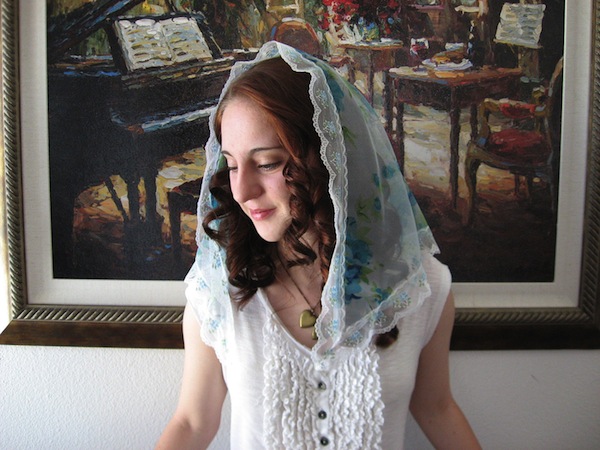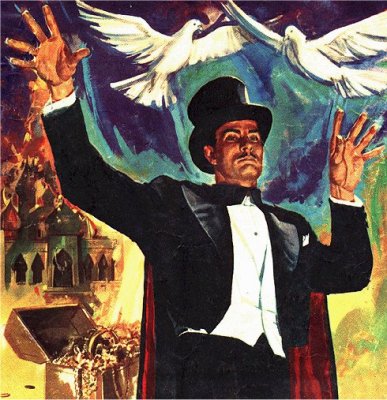A few thoughts on head coverings
 A friend of mine recently asked me about the veils worn by female parishioners at a church she had visited. I didn’t have much to say since, being a boy, I hadn’t given too much thought to the subject of frilly lace…
A friend of mine recently asked me about the veils worn by female parishioners at a church she had visited. I didn’t have much to say since, being a boy, I hadn’t given too much thought to the subject of frilly lace…
My first real exposure to the chapel veil and mantilla was in Washington DC, when I went to my first Extraordinary Form Mass at the Basilica. If you have attended a Latin Mass you may well have noticed them too.
However, it’s not like the use of veils is restricted only to “traditional” Catholics. I’ve occasionally seen veils at English Novus Ordo liturgies. Additionally, the reason that there aren’t many good photos of me at my First Holy Communion is because, in most pictures, my face is partially or wholly obscured by a veil belonging to one of the girls in my class! But the most common prevailing use of the veil is, of course, by a bride at her wedding.
I tried to do a little bit of research on the history and theology of veils but I unfortunately didn’t find a lot of good source material, so if you know a lot about veils or have any good resources you’d like to share, please respond in the Comment Box below.
